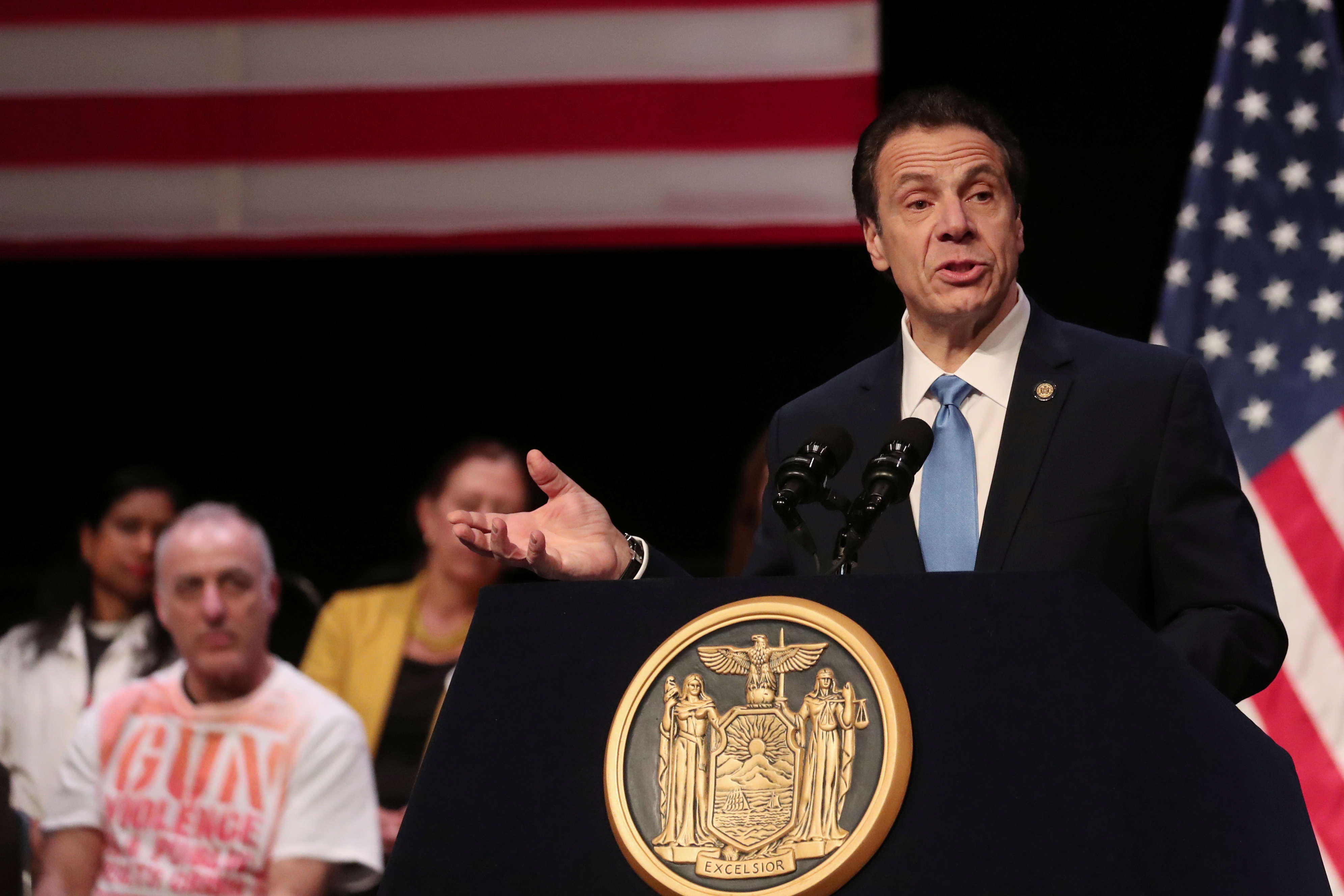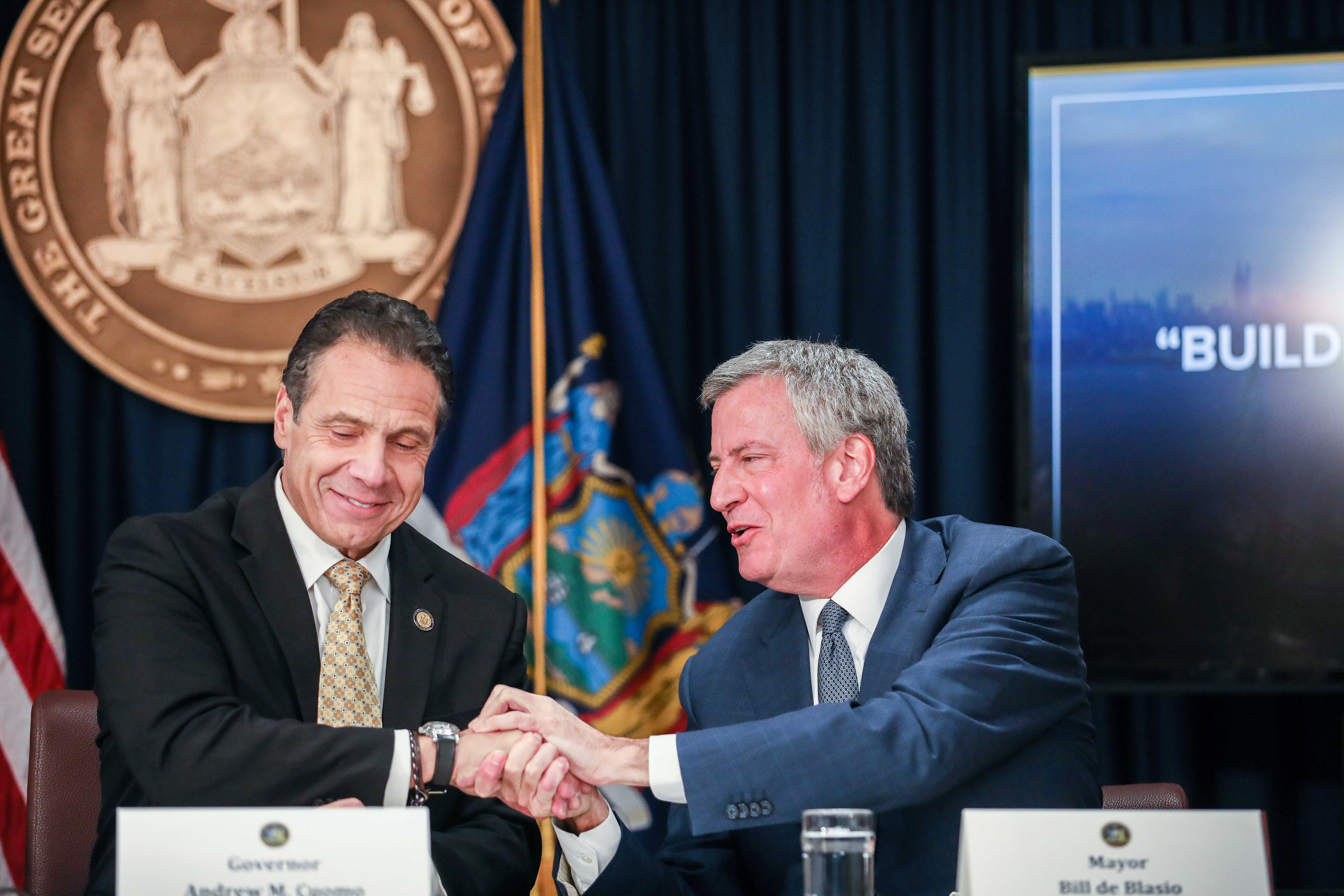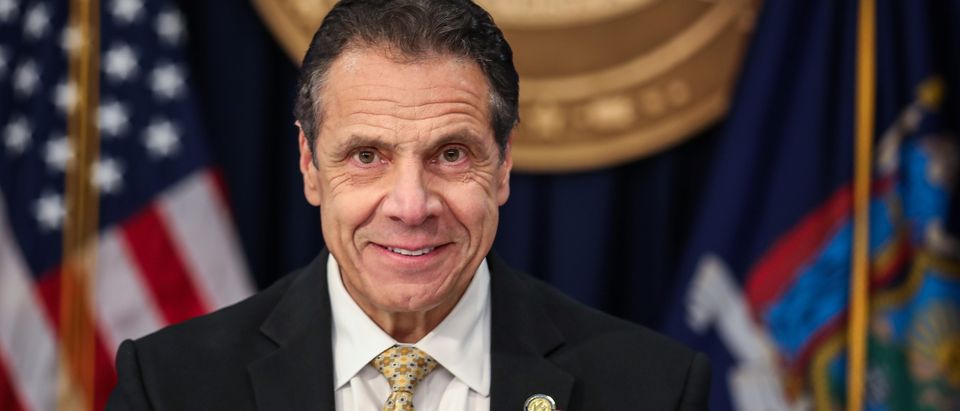New York lawmakers passed sweeping legislation Thursday to tackle global warming, but critics have pointed out the bill would be costly and likely have a negligible effect on temperatures.
New York’s climate change bill aims to cut state greenhouse gas emissions to 85% below 1990 levels over the next three decades, which Governor Andrew Cuomo admitted would be “very expensive.” Though, the Democratic governor is still expected to sign the bill into law.
Democratic state lawmakers cheered the bill’s passage. The bill’s sponsor said New York’s bill could “inspire others to act” on global warming. (RELATED: Here’s What Amy Klobuchar Said Her First Act As President Would Be)

New York Governor Andrew Cuomo speaks before signing the Red Flag bill, also known as the Extreme Risk Protection Order bill, in New York, U.S., February 25, 2019. REUTERS/Shannon Stapleton.
“This means that despite the mood of anti-science in our nation, the disbelief in Washington to climate change, that states can lead the way,” said Democratic New York state Assemblyman Steve Englebright, Reuters reported.
New York’s greenhouse gas emissions stood at 218.14 million metric tons in 2015, according to the most recent state government figures. That’s 8% below 1990 levels, so the state needs to cut a further 77% under the new law.
A 77% drop from New York state’s emissions profile would mean cutting another 168 million metric tons of greenhouse gases, which comes out to roughly 0.3 percent of global emissions.
That’s right. New York’s climate bill, touted as the “one of the nation’s most aggressive,” would only cut 0.3 percent of global emissions by 2050.
In the meantime, global emissions are projected to rise, mostly from improving standards of living in China and India. In fact, China’s emissions growth from 2017 to 2018 was 1.7 times more than what New York plans to cut over three decades.
The effect on global average temperature? Virtually nothing.
Global average temperature would only be reduced 0.14 degrees Celsius by 2100 if the entire U.S. immediately stopped emitting greenhouse gases, according to a government climate model. In other words, New York’s plan would have a negligible effect on global average temperature by the end of the century.

New York Governor Andrew Cuomo and New York Mayor Bill de Blasio speak during a news conference about Amazon’s headquarters expansion to Long Island City in the Queens borough of New York, in New York, U.S., November 13, 2018. REUTERS/Jeenah Moon.
Experts have also question whether New York’s emission-cutting bill is even possible with current technology. Manhattan Institute adjunct fellow Jonathan Lesser called the bill’s mandates “physically impossible.”
“Even if you put wind turbines on every square mile of land in the state, you would not come close to meeting the state’s existing demand for electricity,” Lesser said in an emailed statement. “And you would need to cover most of the state with solar panels.”
“Nothing New York does on its own will have any measurable impact on world climate,” Lesser said. “Nor, if this bill is signed into law, will developing nations suddenly say ‘Gee, New York passed a climate law. Let’s wreck our economies, too, to save the planet.'”
All content created by the Daily Caller News Foundation, an independent and nonpartisan newswire service, is available without charge to any legitimate news publisher that can provide a large audience. All republished articles must include our logo, our reporter’s byline and their DCNF affiliation. For any questions about our guidelines or partnering with us, please contact licensing@dailycallernewsfoundation.org.


